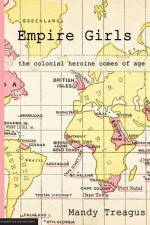401
Contemporary technologies shape and transform subjectivities, behaviours, beliefs, creative techniques, the form and governance of institutions, and people's experiences of connecting with others in the physical world and virtual spaces, even in the city itself. Increasingly, these modalities are formed, fragmented and reformed through access to particular technologies - platforms, websites, applications, games, profiles, groups and hashtags. Transitions from web content delivery, through the extraordinary fluidity in the communicative potential of social media, to the smart control of aspects of one's environment are never smooth or uncontested. What constitutes a place or a public can be controversial. New developments benefit some, and exclude or impose unexpected restrictions on others.This book focuses on the surprising generative possibilities which digital and smart technologies offer media consumers, citizens, institutions and governments in making publics and places, across topics as diverse as Twitter audiences, rural news, the elasticity of the public sphere, Weibo, cultural heritage and responsive spaces in smart cities. Multidisciplinary perspectives engage with critical questions in new media scholarship. General readers, curious about how technologies are enabling social, public and civic participation, will enjoy the book's mix of fresh approaches and insights.





















